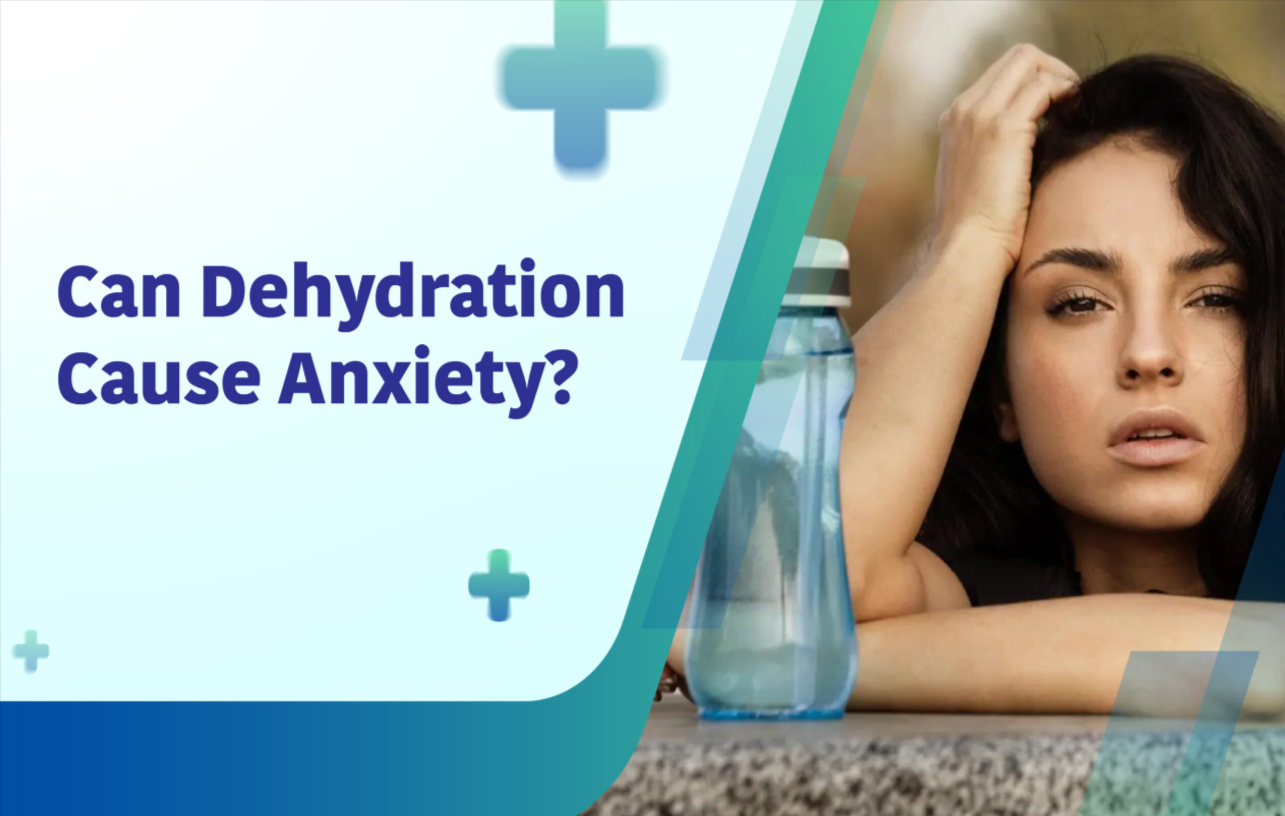Can Dehydration Be a Hidden Cause of Anxiety?

Someone suffering from anxiety would find it useful to consume water-rich foods as nutrition. Dehydration may cause physiological effects misinterpreted to be anxiety symptoms - dry mouth, dizziness, and more irritability.
Dehydration is posited to increase the occurrence of panic attacks among susceptible individuals. During panic, hydration may not keep panic attacks from striking, but it will certainly help minimize them.
1. Remain Hydrated
All systems in the body, including the mind, rely heavily on water as a nutrient, indeed. Most studies on the relationship between dehydration, anxiety, and depression were conducted with less regard for the brain, yet estimates show that about 75 percent of the brain-tissue is water. Effects of hormonal and neurotransmitter alterations that may be caused due to dehydration tend to reshape and probably turn to anxiety-fostering changes.
To say it clearly, water is best for anxiety relief. It boosts spirits, digestion, and body weight while improving energy and health! It is needed to keep hydrated and quite simply makes hydration beneficial to drinking any other sugars or caffeine drinks and sodium additives.
To those that find it hard to drink water, make a schedule where appropriate amounts are drunk before meals or after brushing or any other time you use the bathroom. Buy yourself a beautiful water bottle so that your love for it will make it easier to carry around and drink from frequently. Consume more foods with high water content such as tomatoes, cucumbers, lettuce, strawberries, and herbs which have more waters in them.
2. Eat More Fruits and Vegetables
It is commonly known that fruits and vegetables are essential for mental health, but most people forget to sufficiently include these foods in their diets.
Physiological responses emerge from dehydration potentially sounding an alarm similar to anxiety with increased heart rhythm, headache, and a sensation of faintness. And being dehydrated tends to sap you of energy and cognitive functions, really making it hard to focus and pay attention-this state was called brain fog.
The more fruits and vegetables one consumed translated to more happiness and satisfaction in life; one indicated that an extra serving in a day is equal, in satisfaction terms, to getting from unemployment to employment, with results measured within a span of 24 months.
These scientific findings have revealed foods that help in upholding mental wellness among them bananas, citrus fruits, berries, green leafy vegetables; in general, five servings of fruits and vegetables may have a propitious effect on improving mental health, especially among anxiety-prone individuals.
3. Everybody Should Exercise More
Dehydration is when a body's fluids are more lost than supplied through various tasks such as hot or dry weather, doing any strenuous body exercises, vomiting or diarrhea, high altitude, certain medications like diuretics, or excessive sweating.
Dehydration can even create anxiety and confused thoughts in mild cases. Furthermore, studies showed that when dehydration occurred, a contraction of the brain shape may occur, which could lead to impairment in the mind's assimilation.
Some of the features of being dehydrated would be thirst, dry mouth, and tongue, and an output of less urine urine unless on medicines that might make this increased, dark urine will come out, being confused and fatigued. Shaking can also occur in any of the upper body parts-from hands, arms, legs, or head, at the same time.
If you are also one of those who experience these panic attacks frequently, it would be better to consult your doctor instead of relying on drinking water to make the condition better. Avoid dehydration by drinking water, tea, soft drinks, and juices to cure anxiety attacks; at the same time avoid alcohol and other caffeinated drinks since they may worsen anxiety.
4. Decrease Alcohol Intake
Alcohol has always been the most effective social lubricant in which a person suffering from anxiety finds himself. It brings quickly a euphoric state, that is reduced inhibition and temporary relief of anxiety symptoms; however, dies very quickly to give way to worse anxiety episodes to come much sooner, putting one into a vicious cycle of self-medication.
It gets dehydrated from an already thirsty body through increased urination, which acts as a diuretic, and may aggravate any thought and judgment symptoms arose from anxiety. A right choice would be to keep away from alcoholic beverages while hydrating yourself with lots of water.
Hydration can improve your confidence and one´s symptoms of anxiety. Ask a psychologist how anxiety could be controlled by other means besides alcohol and substances. It may be hard to do things on your own, and spreading the effort thin may make doing so easier with the help and support of other people.
5. Remain Hydrated When Traveling
Hydration is a must for everyone as summer vacation and travels are underway. Air travel and hot weather will dehydrate a person, so to stay hydrated during these voyages, drink a lot of water prior to departure and carry along a refillable water bottle; ask for water during meals in restaurants or cafes, and remember to keep refilling during meal stops and cafe breaks!
The brain weighs 75% water, meaning that all water-very concentrated foods have to be ingested to work well: fruits and vegetables, broths, and low-sodium soups.
A reminder to the person to drink water can be good or the use of a tracker app to remind one to sip water can help keep this resolution. Spend on a pretty bottle to carry around, making it less a chore to access! Drinking water an hour before sleeping is also good as some serious sleep will take off anxiety symptoms.
